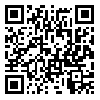دوشنبه 4 اسفند 1404
[Archive]
دوره 12، شماره 3 - ( 5-1403 )
جلد 12 شماره 3 صفحات 252-241 |
برگشت به فهرست نسخه ها
Download citation:
BibTeX | RIS | EndNote | Medlars | ProCite | Reference Manager | RefWorks
Send citation to:



BibTeX | RIS | EndNote | Medlars | ProCite | Reference Manager | RefWorks
Send citation to:
Ahmadbeigi Z, Babapour Kheireddin J, Nosrat Abad T H. Cognitive Abilities in Monolingual and Bilingual Children: A Comparative Study in Azerbaijan, Iran. PCP 2024; 12 (3) :241-252
URL: http://jpcp.uswr.ac.ir/article-1-930-fa.html
URL: http://jpcp.uswr.ac.ir/article-1-930-fa.html
Cognitive Abilities in Monolingual and Bilingual Children: A Comparative Study in Azerbaijan, Iran. Practice in Clinical Psychology. 1403; 12 (3) :241-252
چکیده: (3240 مشاهده)
Objective: Recent research has revealed that bilingual and monolingual people differ from each other in various areas, one of which is cognitive ability. This study aims to compare executive functions, selective attention, visual short-term memory, and auditory short-term memory in monolingual (Persian) and bilingual (Azeri Turkish-Persian) children.
Methods: The statistical population of current case-control research included all monolingual and bilingual students (8-11 years old) in Tehran Province, Iran, from 2021 to 2022. Using the convenience sampling method, 56 monolingual primary school students (28 boys and 28 girls) and 56 bilingual primary school students (28 boys and 28 girls) were selected and matched regarding intelligence and socio-economic status. All members of the bilingual group learned their second language before entering elementary school. We used the computerized version of the Wisconsin card sorting test (WCST), the computerized version of the Stroop color and word test (SCWT), the Kim Karad visual memory test (KKVMT), Wechsler’s digit span test (WDST), and Raven’s colored progressive matrices (RCPM) test. The data were analyzed via descriptive statistics and multivariate analysis of variance (MANOVA).
Results: The results indicated that bilingual children’s performance in executive functions, short-term auditory memory, and short-term visual memory was significantly higher than monolingual children (P<0.05). However, no significant difference was observed between the two groups regarding selective attention (P>0.05).
Conclusion: According to our results, bilingualism positively affected cognitive abilities. Moreover, bilingual children performed better in executive functions, visual short-term memory, and auditory short-term memory than monolingual children. However, no bilingualism effect emerged for selective attention.
Methods: The statistical population of current case-control research included all monolingual and bilingual students (8-11 years old) in Tehran Province, Iran, from 2021 to 2022. Using the convenience sampling method, 56 monolingual primary school students (28 boys and 28 girls) and 56 bilingual primary school students (28 boys and 28 girls) were selected and matched regarding intelligence and socio-economic status. All members of the bilingual group learned their second language before entering elementary school. We used the computerized version of the Wisconsin card sorting test (WCST), the computerized version of the Stroop color and word test (SCWT), the Kim Karad visual memory test (KKVMT), Wechsler’s digit span test (WDST), and Raven’s colored progressive matrices (RCPM) test. The data were analyzed via descriptive statistics and multivariate analysis of variance (MANOVA).
Results: The results indicated that bilingual children’s performance in executive functions, short-term auditory memory, and short-term visual memory was significantly higher than monolingual children (P<0.05). However, no significant difference was observed between the two groups regarding selective attention (P>0.05).
Conclusion: According to our results, bilingualism positively affected cognitive abilities. Moreover, bilingual children performed better in executive functions, visual short-term memory, and auditory short-term memory than monolingual children. However, no bilingualism effect emerged for selective attention.
نوع مطالعه: پژوهشي |
موضوع مقاله:
رويكرد شناختي رفتاري
دریافت: 1402/11/28 | پذیرش: 1403/1/18 | انتشار: 1403/4/11
دریافت: 1402/11/28 | پذیرش: 1403/1/18 | انتشار: 1403/4/11
| بازنشر اطلاعات | |
 |
این مقاله تحت شرایط Creative Commons Attribution-NonCommercial 4.0 International License قابل بازنشر است. |



